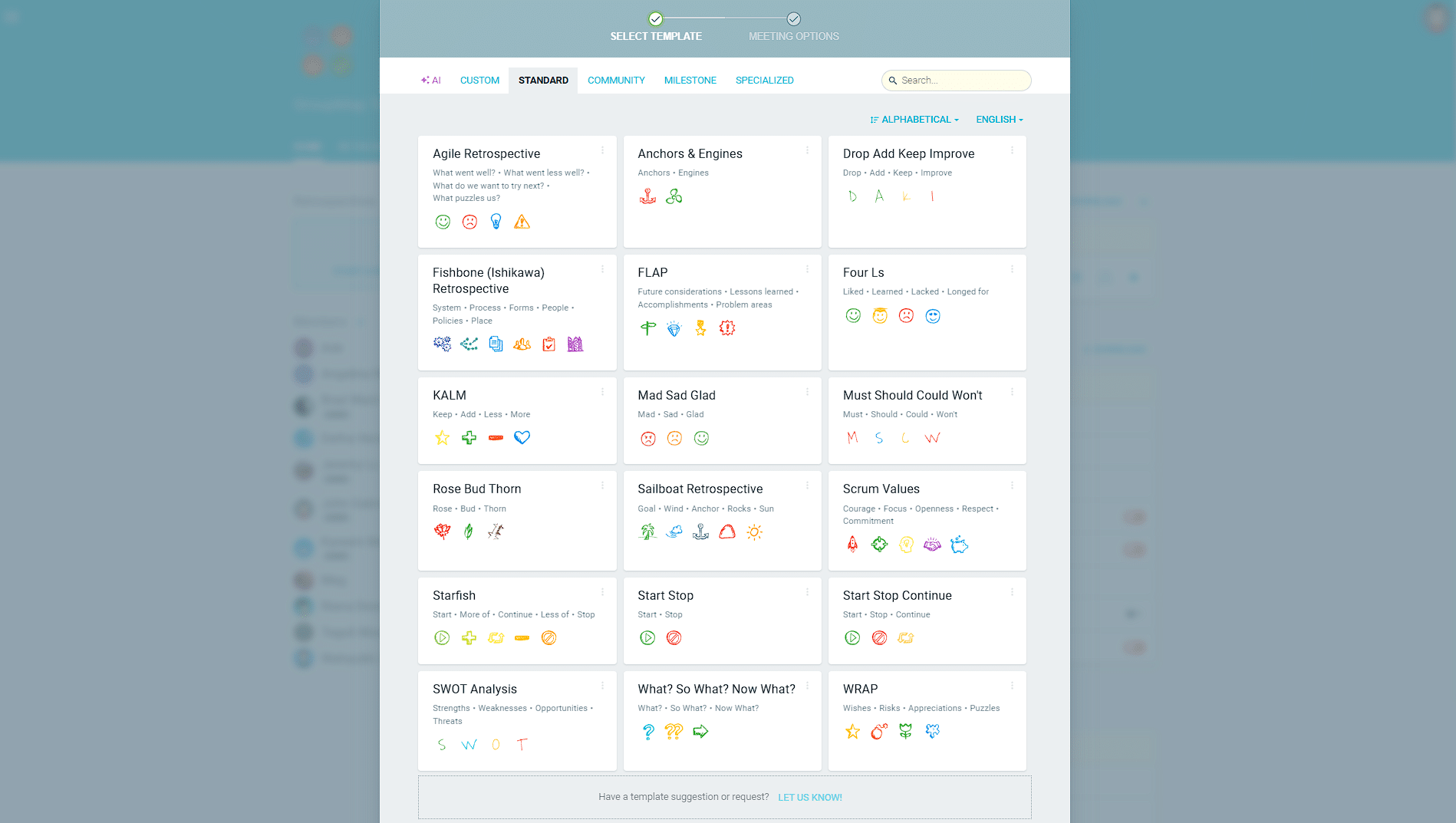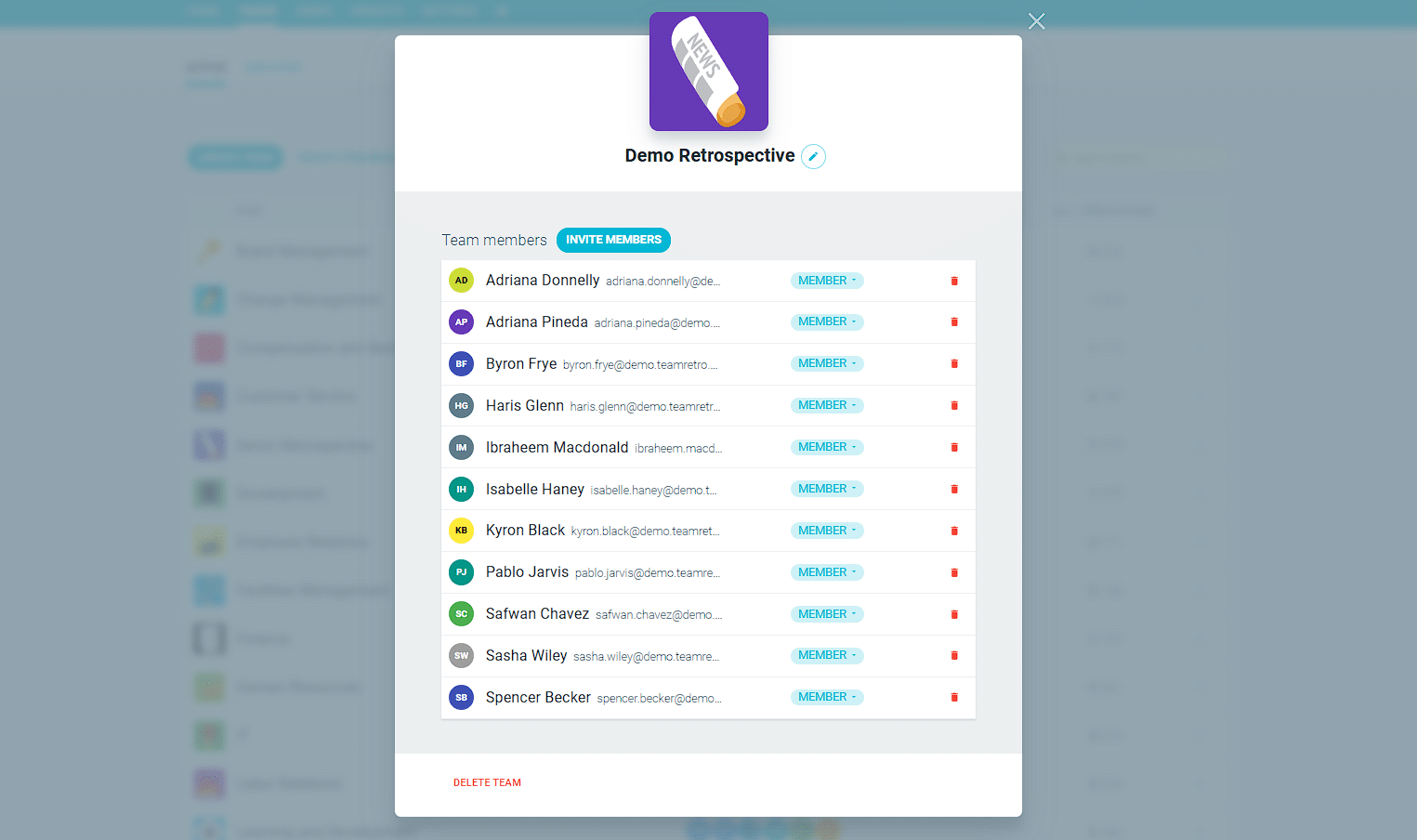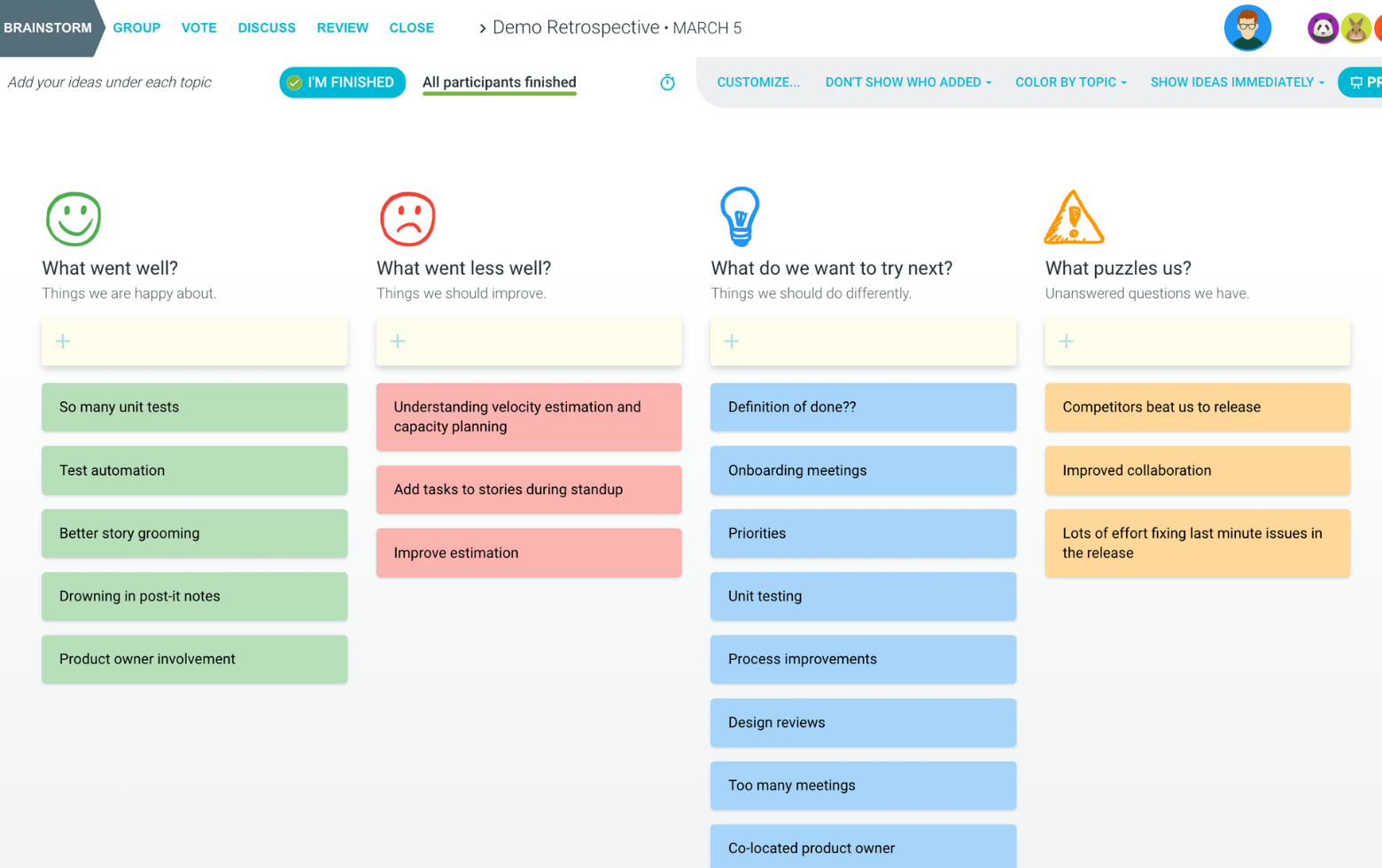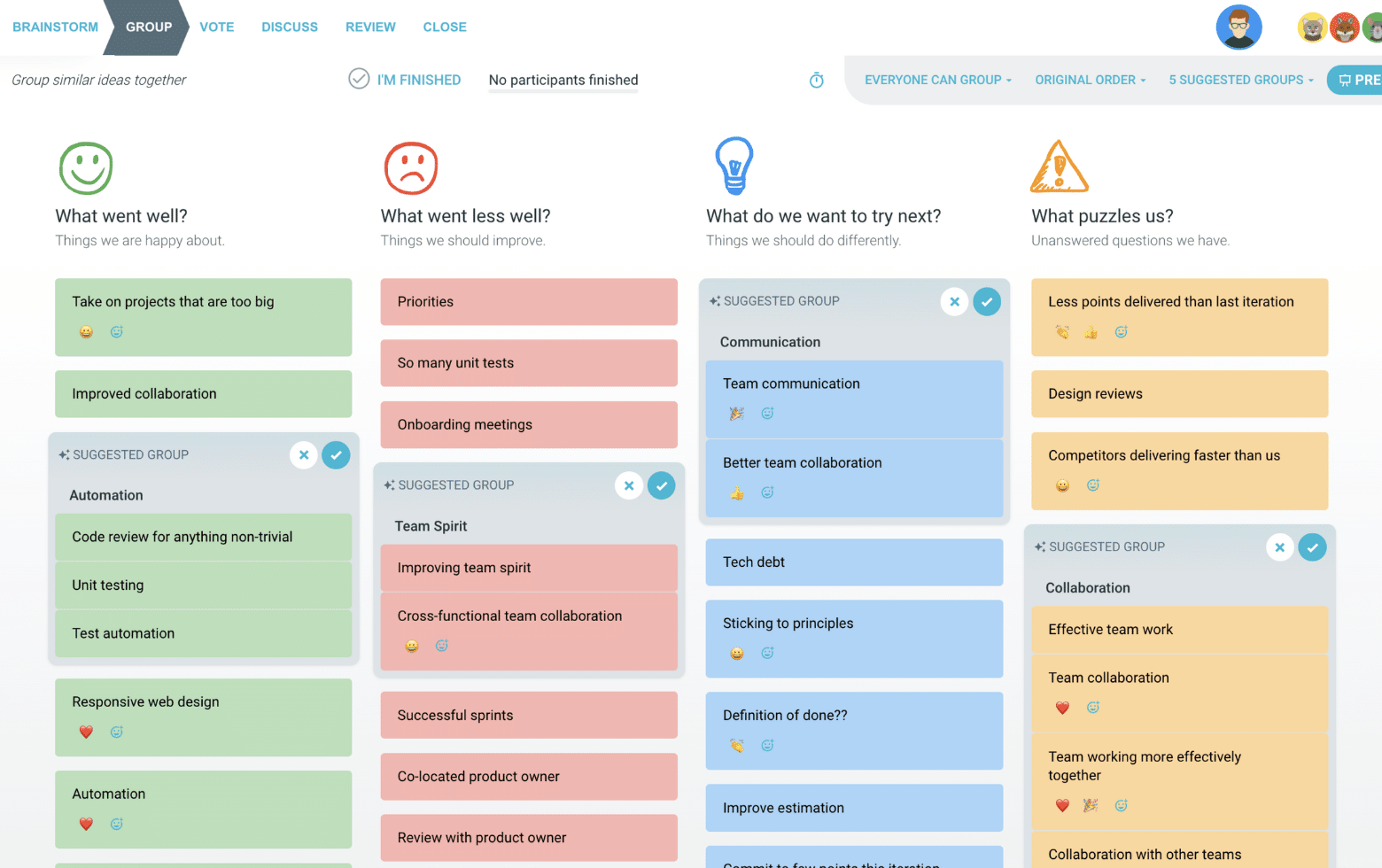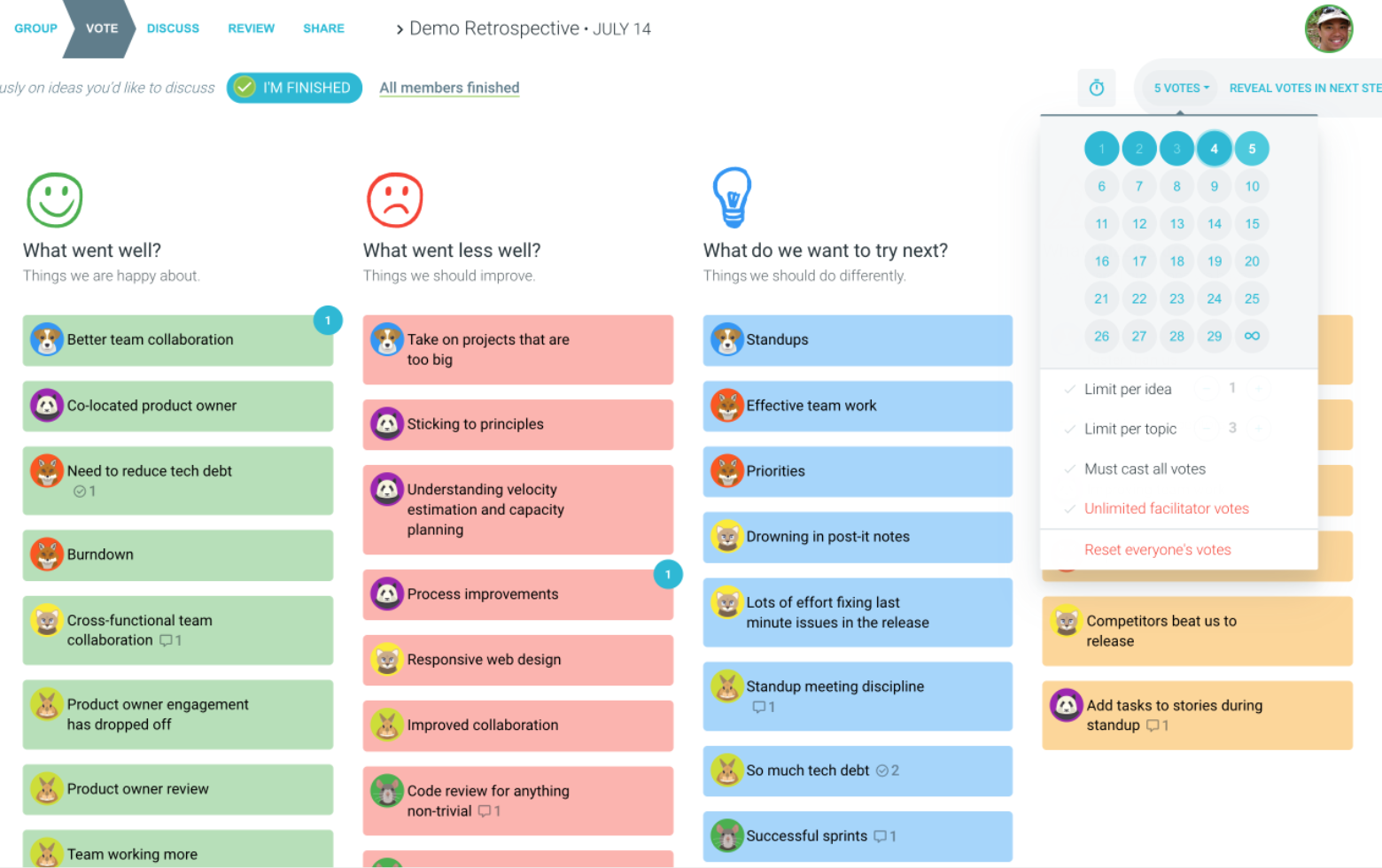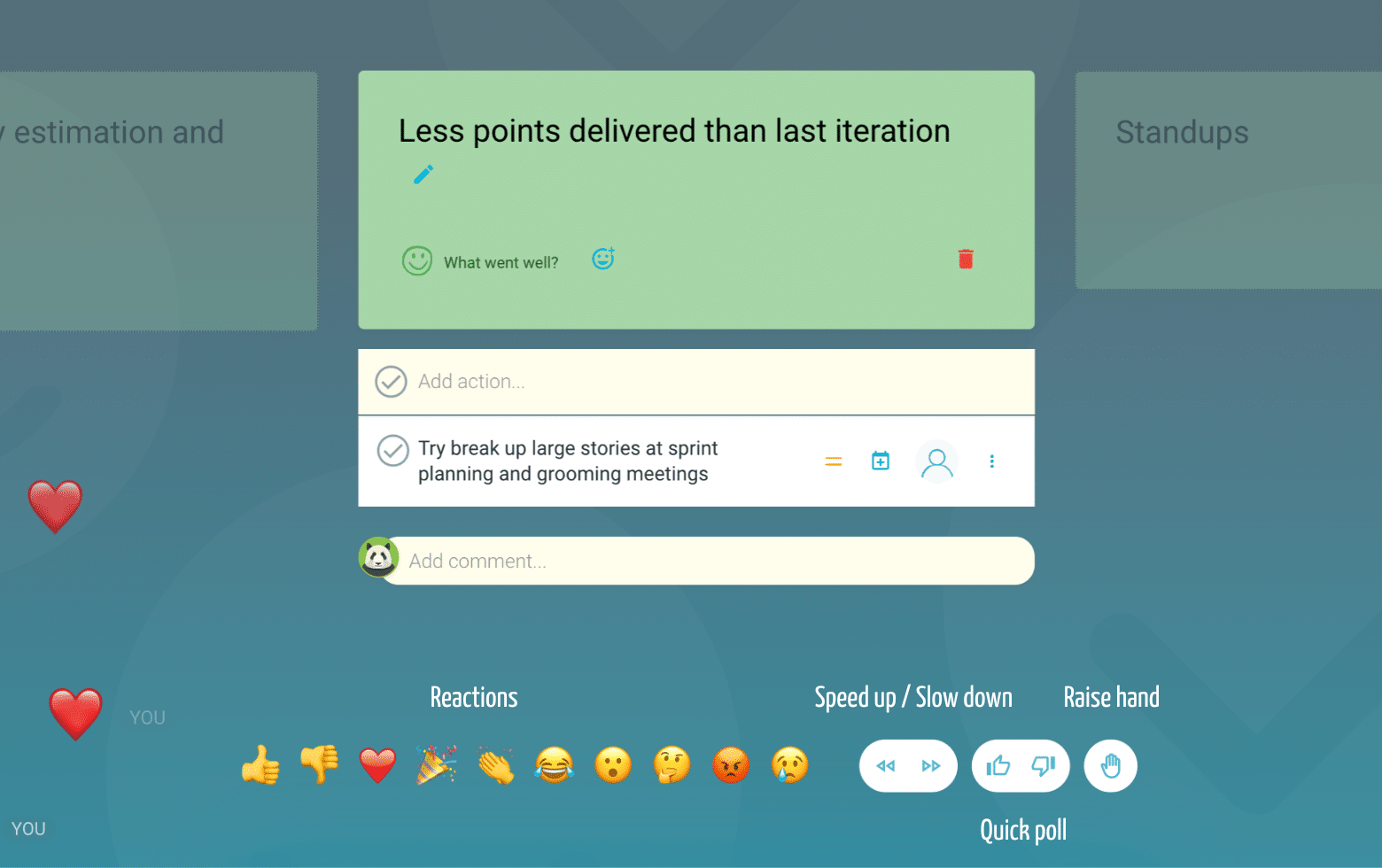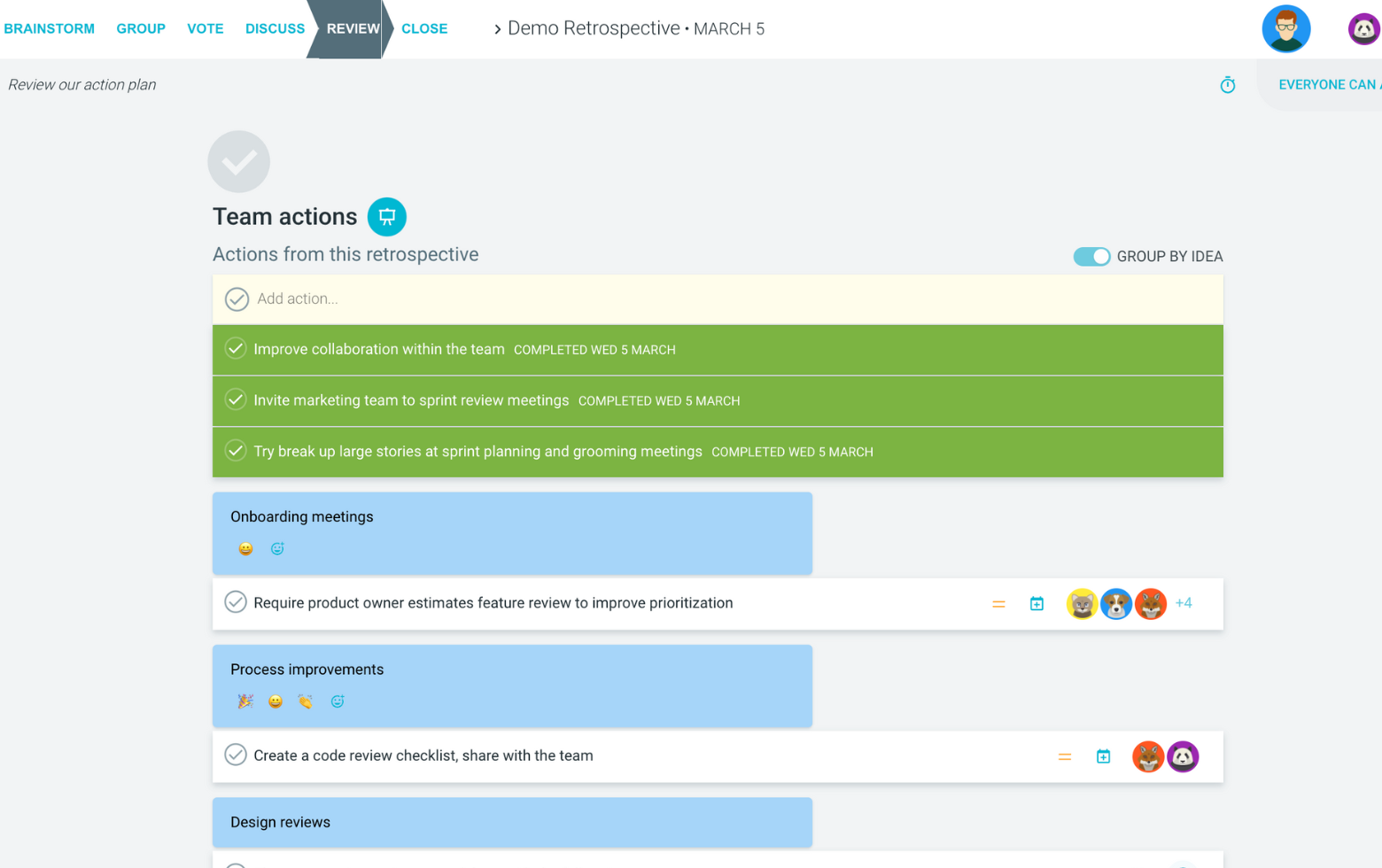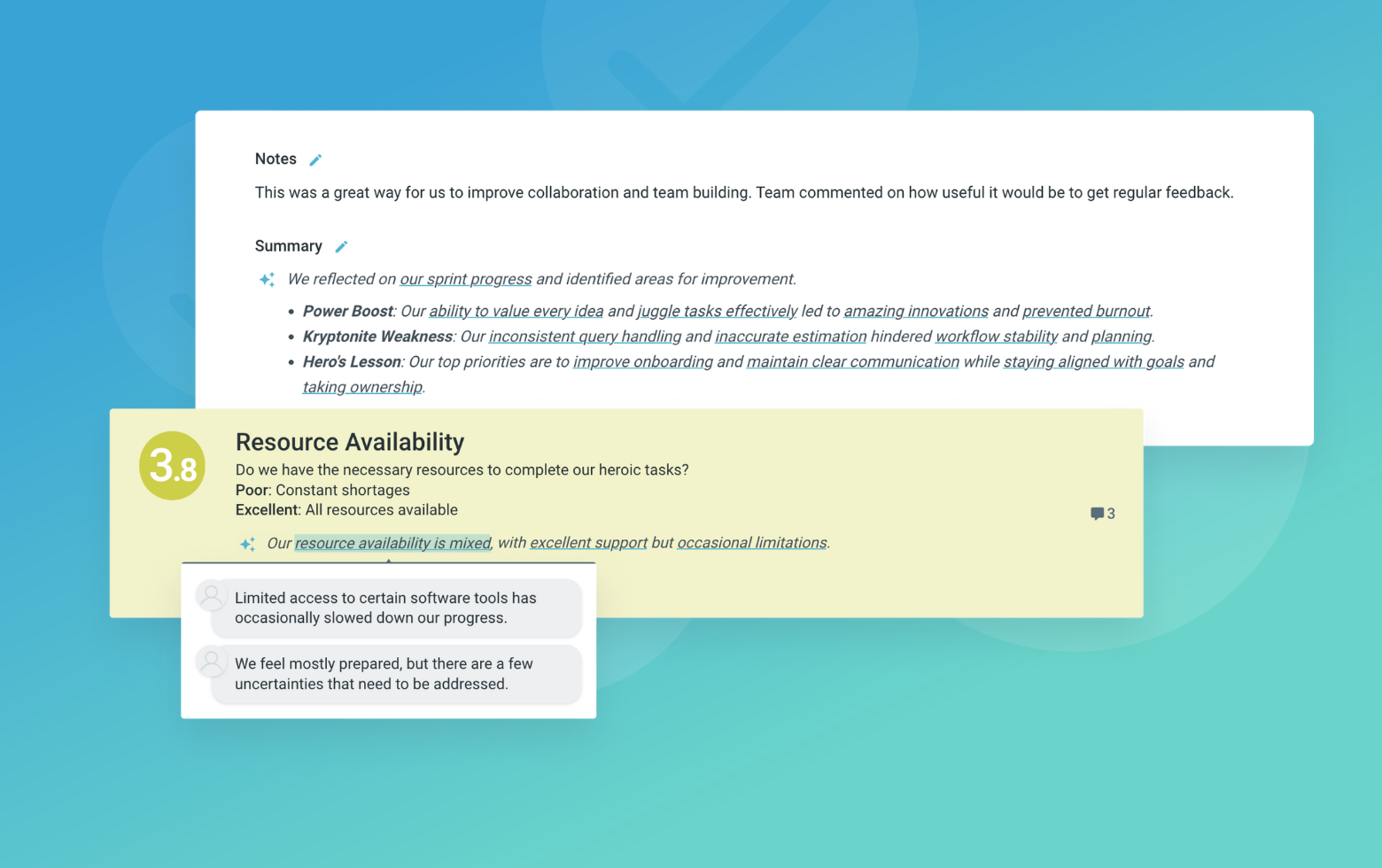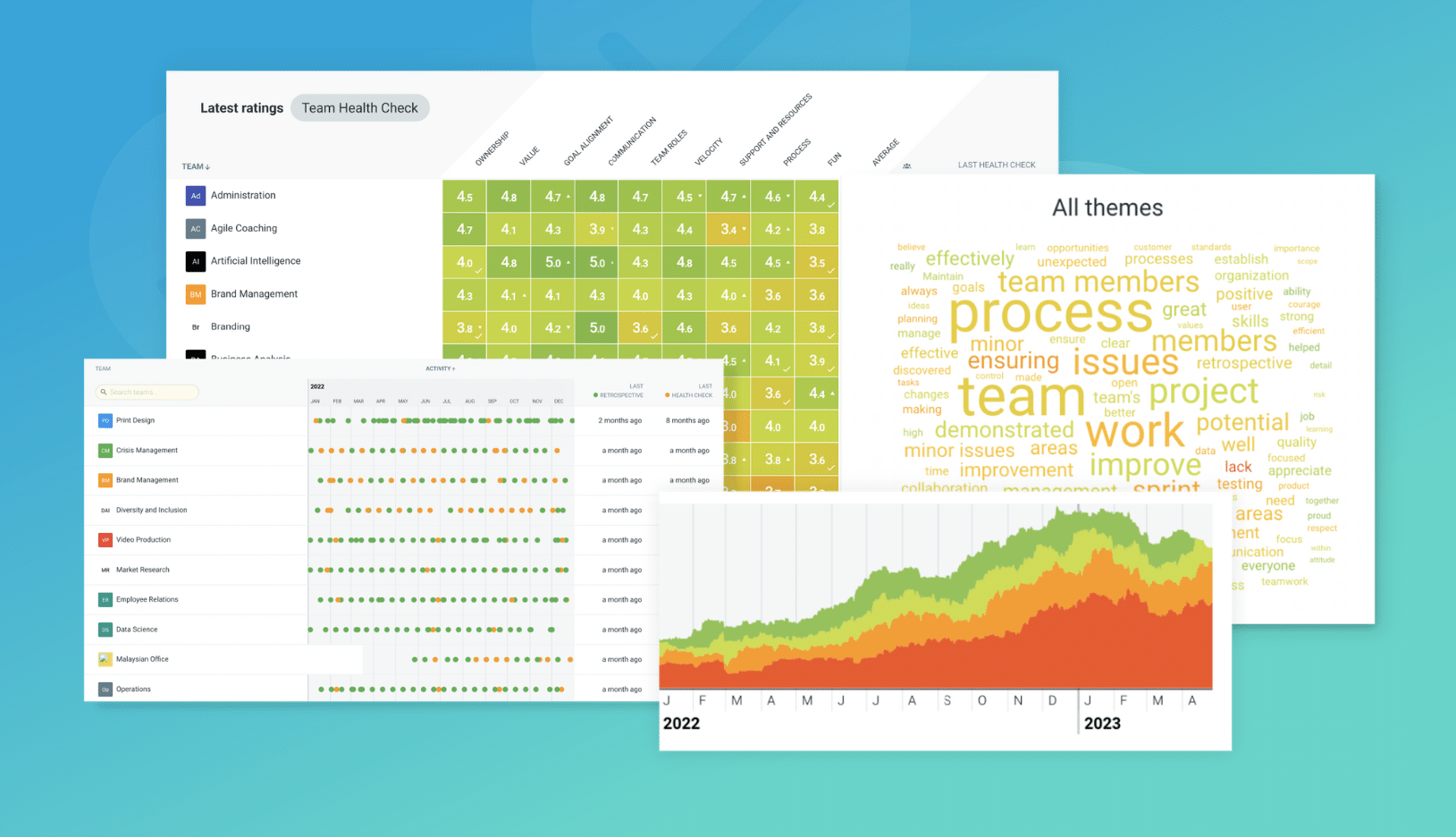What is the Superhero retrospective?
This is a fun, creative retrospective exercise that can be especially engaging for remote teams that have to come together to solve a common problem or work towards a goal.
Of course each team has its own set of superpowers, but they will also have their vulnerabilities and this retrospective template can help uncover these.
Building on the concept of creating your own team of super heroes, each person in the team (Designer, Developer, UX, Product Owner) can explore how each of their unique skills and attributes contribute towards the ultimate goal. This is a really useful way to see if there are any gaps in the team, or where there might be opportunities to cross train, up skill or pair up to improve the team’s overall changes of success. It also highlights the resources that the team will need to reach their goal.
Superhero retrospective format
Our Values
What words drive you or our team. This can give a lot of insight as to how people might describe themselves or the team and what motivates them. Giving the team a value set to live and work by allows them to refer to these as they continue to work with each other during the sprint and can describe the way people interact (or want to interact with each other.) This can be captured in a social contract for the team.
Superpowers
What specific skills, traits, attributes or knowledge does each person possess team and how this can be shared, leveraged and built over the long term. There’s room for some novelty and fun here, but it is important that there is also a serious element that allows people to reach out and help each other. Ideally this is non-anonymous so that it can be shared. Examples of super powers include ability to create detailed test plans with wide use cases and UX design skills for the colour blind through to consultation and workshop facilitation skills in dealing with client customers and end users.
Weaknesses
These are areas of development and emerging skills with which team members may need help. People need to feel safe when sharing their vulnerabilities, it is therefore important to remind team members everyone has weaknesses and the retro is a judgement-free space. Each person should reflect on one weakness and share this (we all have them!). The goal here is to look for opportunities to help address or close the gap on these weaknesses or to ensure there are appropriate stop gaps to manage these.
Evil Nemesis
This is what would destroy the team or be a challenge to the team along the way. The nemesis isn’t a person as such. It can be badly designed process, a failed policy being applied, the wrong technology choice or even something as a security risk. The goal is to disempower this nemesis and to put in proactive defensive mechanisms.
Sidekicks and Gadgets
These are what the team need to support the work they do. Wonder woman had her Lasso of Truth, Batman had Robin. Sherlock had Watson and Mickey Mouse had Pluto. Helping your team collaborate and giving them the tools to do so will allow them to hit their targets and reach their goals.
Suggested icebreaker questions for Superhero retrospective
- Who is your favorite superhero and why?
- For which supervillain do you have the most respect?
- Would you rather have – super speed or supervision?
Retro Rehearsal
Invite your team to rehearse the retro referencing their home to-do list.
For example, when you think of your to-do list, how does it demonstrate your values, your superpowers/weaknesses, the nemesis, or the sidekick?
Ideas and tips for your Superhero retrospectives
Running this fresh and fun retrospective meeting tends to focus more on building team rapport, helping understand what people can bring to the table and who might be a good resource for the team.
-
Set the stage. Open up with an Icebreaker that asks each person who their favourite superhero is and why.
-
Make brainstorming anonymous to allow people to feel safe when contributing their thoughts. People will feel more engaged when they feel like they can air what they need to.
-
Be careful that the strongest team members do not become over burdened and look for opportunities for where the contribution from each person may be normalised, while promoting self learning and development opportunities.
-
Use the way teams vote to manage culture. You’ll get interesting insights when people vote individually. The last thing you want is the sheep mentality where people simply follow what has already been done.
-
One of the keys of success of this retrospective format is that it is not just focussed on a specific period of time for the project but on the people in the team and how they can thrive together.
-
In face to face meetings, doing things digitally allows you to collect ideas, vote and comment anonymously, and saves manual collation. If running your meeting digitally, use a video conferencing tool to give that personal touch.
-
Follow up with an action list that you will check off at the start of the next team retro. After all, nothing changes without the right actions. Giving people ownership and set due dates for accountability.
How to run a Superhero retrospective in TeamRetro
Start Your Session in a Click
Log into TeamRetro and choose your template. Customise questions and the workflow to create your perfect retro for your team.
Create Your Team Easily – No Separate Accounts Needed
Brainstorm Individually – Free From Bias
Smart Grouping for Faster Insights
Fair, Flexible, and Fast Voting
Engage, React, and Capture Key Insights
Walk your team through ideas one by one with Presentation Mode. Stay in sync, spark real-time discussions, and capture feedback with comments, live reactions, and polls—all in one place.
Turn Ideas Into Action
Propose next steps with team buy-in, get AI-powered action suggestions, and keep everything in one place. Committed actions sync to your personal dashboard and integrate with your workflow tools—keeping you on track.
Save, Share, and Stay on Track
Get quick AI-powered summaries, add facilitator notes, and store retrospectives in your library for easy access. Schedule your next session and track published actions to keep your team accountable at the next retro.
Turn Team Data into Actionable Insights
Uncover trends, common themes, and key engagement metrics at a glance. Track sentiment shifts, analyze conversations, and monitor completed actions to drive continuous improvement.
